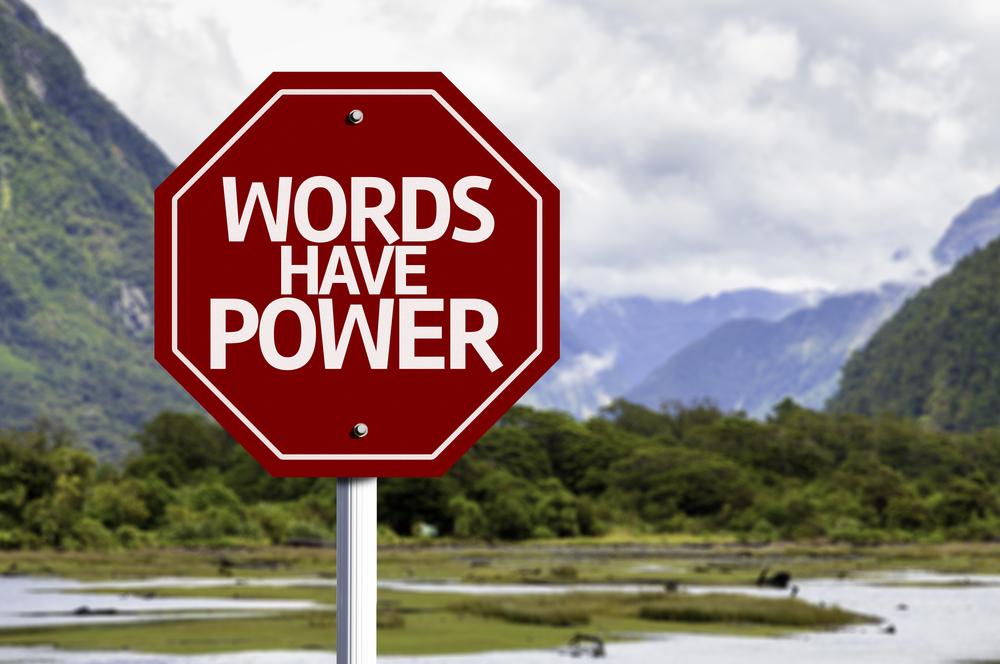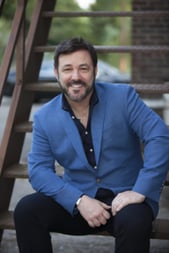
There’s a brave new world for parents and therapists to navigate as they understand changing labels for teens regarding gender identity and sexual identity.
For a generation that claims not to be into labels, they're sure coming up with a lot of them, especially when it comes to sexual identity and gender identity.
Seemingly overnight we have entered the uncharted territory of “boutique sexual identities,” abounding in confusing new labels such as “gender queer,” “nonbinary,” “homoflexible" and "heteroflexible.”
Teens are determined to break out of the traditional and confining labels of “cisgender” and “heterosexual.” The cultural taboos against talking about sex are rapidly breaking down, and this often presents challenges to both parents and therapists.
But, this is good.
We’re living in a time in which change seems to be accelerating in nearly every aspect of our world. It can be challenging, and very often adults react by trying to revert to old, seemingly reliable definitions and customs, despite evidence that doing so causes even more anxiety and alienation.
Teens, however, are looking at options, taking a little of this and a little of that and saying, “I’m going to tell you who I am, not be defined by your definition.” For instance, a younger client may say they’re “NB” (non-binary). What they might mean is that they don’t identify with any gender, with a blend of genders, or none at all.
It's important to realize and remember that it's in the teen job description to question everything and to frequently be confused and change their minds. While children may start out saying they want to grow up to be an astronaut or a fireman, by the time they hit their teens they may be changing their career ideas, and everything else as often as they change their clothes.
Our culture once provided only narrow definitions of acceptable sexuality, but now teens and the rest of us are confronted with a dizzying array of new ways to think about sexual expression.
Teens have always struggled to distance themselves from the confines of their parents’ world and forge new ways of thinking and doing. It’s called differentiation and individuation—in other words, “growing up;” and from a larger perspective, this is how human culture progresses.
Thought about what you’re going to say?
So how can parents and therapists go beyond shock, reaction, and judgment to respond positively and helpfully to whatever gender or sexual identity our teens are determined to explore? Something I always tell parents is, “Have you ever thought about what you're going to say if your child comes out to you as LGBT or not “straight?” Often, they’ll look at me as if I have two heads. “Why would I think about that?” they ask. And I say, “Because this is something that is happening more and more, and you need to prepare for the possibility that you are raising an LGBTQ child. If your child tells you this, it means they trust you, and want a closer, more truthful relationship with you. And how you respond can have long-lasting effects.”
Actually, the teen may not really be totally committed to a sexual or gender identity that they name. They might just be trying it on like a new pair of shoes, and our job as parents and therapists is to not challenge these new identities, which can lead to much wounding and rebellion, but to approach the revelation with something like, “Well, that’s interesting. Tell me more!”
It’s important to learn how a teen self-identifies
By letting teens express what they're thinking about their sexuality and gender, you're giving them an opportunity to get it out in the open and examine it more fully in the presence of someone who is willing to listen and prod them with thoughtful questions about it. Remember, these definitions are in constant motion, shifting as the person matures and gains more experience of their gender and erotic code.
Also, knowing what someone thinks of themselves allows you to avoid language gaffs that may offend them or shut them down. For example, if you know that someone is gay, you’re not going to ask him his wife’s name, or if he is into that girl on the beach. If you know someone is Jewish, you’re not likely to say, “Merry Christmas,” but rather “Happy Hanukkah.”
But if someone labels herself “lesbian,” that actually tells you little about her sexual behavior and nothing about her sexual history. It’s important to ask exactly what that means because her definition may not be exactly what you find on Google.
In other words, it is important to ask and listen. I once had a client who when I asked her how she self-identified, she said, “I’m a mixed-blood bull dyke, but you can’t call me that.”
“What, then, should I call you?”
"Just a lesbian," she replied. This is typical. Within each community, there is permission to use terminology and language within but not from outside the community. It's considered bad taste for someone outside of that community to use that label. This is true in other intersectional identities as well.
In my practice, I have intake forms in which I ask clients how they self-identify, and what pronouns they prefer to use. Besides the many choices I offer on the form, I also provide an “other” box, and will later explore that in therapy with the client. If they tell me they are LGBTQ I ask them what that means to them and how they want me to refer to them.
However, many teenagers have told me that they’ve identified to their parents as straight, even if they are not. In some cases, if the parent suspects their teen is LGBTQ and asks, the teen will deny it even more strongly. This kind of direct confrontation, they tell me, makes them want to stay in the closet for longer, which can have an unhealthy outcome. They need to reveal it in their own time frame.
Because this is such a sensitive issue, sometimes it's better to lay the foundation for discussing it by going about it “sideways.” That is, by having things like rainbow flags or magazines featuring LGBTQ articles in the waiting room or around the house. This suggests to the teen that you are LGBTQ friendly and may encourage them to broach the subject themselves.
Another possibility might be if they tell you about something bad that has happened to them such as being bullied. As a therapist, you can say, “I have had LGBTQ clients in the same situation and here is what they have done.” This way you're not asking directly, but rather bringing up examples so they know you are a safe person they can tell … should they so choose.
As a parent, you may have heard about someone at school or elsewhere who was bullied for being LGBTQ. Then you might say, “That’s awful that you were bullied. I heard about some LGBTQ kids who were picked on like this. That’s really wrong.” Again, it gives them the chance to perhaps talk about how they’re beginning to think of themselves.
Indeed, we live in challenging times and in such times those who are most prepared to embrace change, explore new ideas, and adapt will be the most likely to emerge with a more positive outlook on life and their loved ones.
If you or your loved ones are struggling around the topic of sexual identity and gender identity, we're here to help. Check out our workshops and therapists! We have online therapy and workshops too!
Discover more about Imago with our Imago Professional Membership, Imago Professional Facilitators, Imago Professional Training and Imago Educational Webinars.

This blog post was written by Joe Kort, Ph.D., LMSW, Imago Certified Relationship Therapist and AASECT Certified Sex Therapist & Supervisor of Sex Therapy.
Joe is a leading expert on sex and relationships. He specializes in Out-of-Control Sexual Behaviors (OCSB)/“sex addiction,” Relationship Problems and Marital Conflict, Sex Therapy, Sexual Identity Concerns, Depression, Anxiety and Post Traumatic Stress Disorder (PTSD). His practice is located in Royal Oak, Michigan, and he welcomes clients from all over the Metro Detroit area. Joe is also available for long-distance coaching and consultation. His practice is mixed with straight, gay, lesbian, bisexual, and transgender individuals and couples.
Joe graduated from Michigan State University with dual Psychology and Social Work majors. At Wayne State University, he earned his Master's in Social Work (MSW), then a Masters (MA) in Psychology, and has received his Doctorate (Ph.D.) in Clinical Sexology from the American Academy of Clinical Sexologists (AACS).
In addition, Joe is also the founder and director of The Center for Relationship and Sexual Health (his associate's biographies can be found here), teaching faculty at the University of Michigan Sexual Health Certificate Program, a Board Certified Sexologist, a member of the Academy of Certified Social Workers, a member of the National Association of Certified Social Workers, a member of EMDRIA Eye Movement Desensitization and Reprocessing (EMDR) Basic Training, and a licensed clinical social worker in the state of Michigan.
Joe has also written a book to help couples and individuals on Amazon.com called Erotic Orientation: Helping Couples and Individuals Understand Their Sexual Lives.



